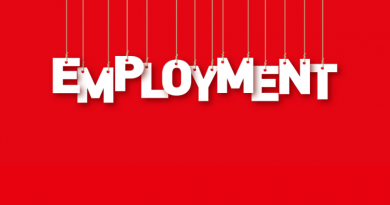Understanding Limiting Beliefs: A Crucial Skill for Effective Leadership in Business
Effective leaders are not just visionaries and strategists; they are individuals who understand themselves deeply, including their limiting beliefs. These unconscious repetitive thoughts can significantly impact leadership style and decision-making. In this article, I will delve into why it’s essential for you, as a leader, to recognise and address your limiting beliefs.
What are Beliefs?
Beliefs are essentially deeply ingrained thoughts we hold about ourselves, others and the world around us that impact our actions and decisions. They are often formed during childhood and can be influenced by family, society or past experiences. Beliefs can either limit us, for example, “I’m not good enough” or empower us, for example, “I can achieve anything I set my mind to”.
Limiting beliefs can manifest in various ways. You might believe you’re not worthy of success, doubt your abilities to lead effectively or fear taking calculated risks. These self-imposed limitations can hinder personal and professional growth, affecting not only you but also your team and organisation.
Self-Awareness as the Foundation
Effective leadership begins with self-awareness. When you understand your strengths, weaknesses and, crucially, your limiting beliefs, you are better equipped to navigate the complexities of the business world. Self-awareness is key to successful leadership as it can help with:
1. Informed Decision-Making: Recognising and challenging limiting beliefs allows leaders to make decisions based on logic and strategy rather than fear or self-doubt. Self-aware leaders can see beyond their preconceived notions and biases, enabling them to make more informed choices for their businesses.
2. Effective Communication: Leadership often involves inspiring and motivating a team. Self-aware leaders can communicate openly about their own challenges and vulnerabilities, fostering a culture of transparency and trust within the organisation. This, in turn, encourages team members to share their concerns and ideas freely.
3. Adaptability: The business landscape is in constant flux. Leaders who understand their limiting beliefs are more adaptable and resilient in the face of change. They are less likely to resist innovation or cling to outdated practices, promoting agility within their business.
4. Empathy: Self-aware leaders are better at understanding the perspectives and needs of their team members. They can empathise with the challenges their employees face, leading to more compassionate and supportive leadership.
Limiting Beliefs in Leadership
Limiting beliefs can take various forms. Here are some common examples which you may recognise within yourself or team members:
1. Impostor Syndrome: Individuals plagued by impostor syndrome doubt their competence and fear being exposed as frauds. This can lead to hesitation in decision-making and difficulty in delegating responsibilities.
2. Fear of Failure: The fear of failure can prevent leaders from taking calculated risks that are often necessary for growth and innovation. It can lead to a stagnant, risk-averse organisational culture.
3. Fixed Mindset: Employees with a fixed mindset believe that their abilities and intelligence are static traits. They may resist learning and growth, missing out on opportunities for personal and professional development.
4. Perfectionism: Striving for perfection can lead to a never-ending quest for flawlessness, causing delays in decision-making and project completion. It can also create unrealistic expectations within the team.
Breaking Free from Limiting Beliefs
Recognising and addressing limiting beliefs is not a one-time endeavour but an ongoing process. As you set new goals and take on different challenges you may notice new limiting beliefs come up. Try the following steps to overcome your limiting beliefs:
1. Self-Reflection: Regularly engage in self-reflection to identify limiting beliefs. Ask yourself what thoughts or fears might be holding you back from achieving your goals.
2. Seek Feedback: Encourage honest feedback from colleagues, mentors, and team members. They may offer insights into areas where your limiting beliefs are affecting your leadership style.
3. Challenge Assumptions: When you identify a limiting belief, ask yourself if it’s based on evidence or simply a deeply ingrained assumption. Challenge these beliefs by reflecting on whether it is always true, where it originates from and whether it helps or restricts you in life.
4. Reframe Limiting Beliefs: Once you have discovered and challenged your limiting beliefs it is important to reframe and replace them. Create a new statement that empowers and supports you. You can ask yourself, what would I like to believe instead and what belief would help me achieve this goal?
5. Get Support: Know that sometimes it can be challenging to see our blind-spots or challenge our own beliefs, especially if they are very deeply engrained in our unconscious mind. If this process feels challenging, seek support from a coach, therapist or other trained mental health provider who can take you through a process to break free from your limiting beliefs.
Understanding and addressing your limiting beliefs is an essential component of effective leadership and will also support you in your personal and professional growth. As a leader, you also have the power to positively influence employees within your business. Once you have overcome your limiting beliefs, consider how you can share this with the wider team. We all have limiting beliefs and a senior leader acknowledging theirs, can encourage employees to recognise their own limitations and foster an open and empathetic culture.
Originally posted 2023-09-11 12:08:24.






